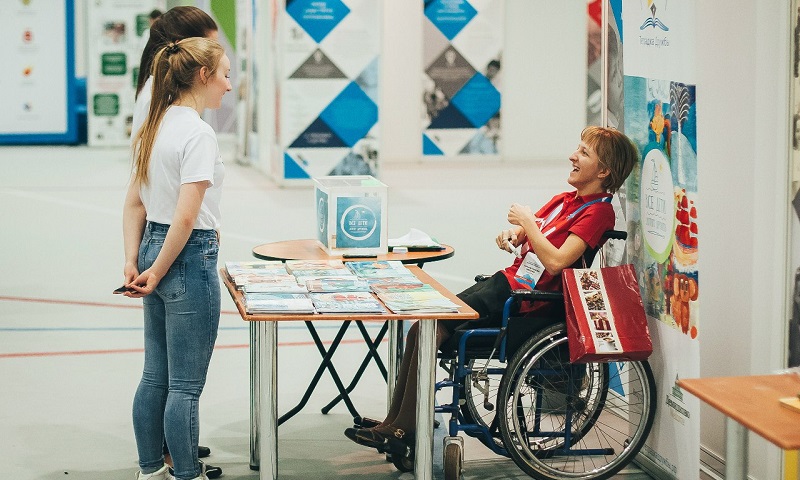
Over a billion people are estimated to live with some form of disability. They remain among the most marginalised people in most societies. This is due to a lack of disability sensitive and responsive policy interventions, barriers like stigma and discrimination as well as inaccessible physical and virtual environments (such as communication devices) and transportation methods, and segregated educational institutions. Accessibility and inclusion are fundamental human rights for persons with disabilities, and are critical to empowering persons with disabilities to live independently, be included in their communities, and to participate in and make contributions to society and development on an equal basis. In essence, the issue of accessibility and inclusion is a critical starting point that governments and the global community must ensure in order to incorporate persons with disabilities and their needs.
Supporting people with disabilities is one of the priority social policy areas in the Russian Federation. Issues related to the rights of children with disabilities is one of the main agenda topics. Social integration of children with disabilities is a systematic problem and it includes not only working with disabled persons but also with their communities.
The principle of equality is paramount. It is necessary to help children master and develop skills that will be useful for their personal growth. At the same time, it is necessary to educate society so they understand more about persons with disabilities. Within this framework, programmes that involve disabled people in public life extremely important.
NGO “Vector of Friendship” (a Russian Civil Society Organisation) has been implementing an innovative policy for social inclusion aimed at the daily socialisation of children with disabilities. The programme is universal and can be adopted to any country with similar level of community commitment to persons with a disability. This programme implements 4 SDGs: no poverty, good health and well-being, decent work and economic growth and reduced inequalities. All activities consist of many ways to interact with children of all abilities.

Sveta’s Story
We would like to share a story of Sveta Muhametzanova, a young lady with infantile cerebral paralysis who became a participant of the programme in 2013. In 2013 Sveta used a wheelchair and was very shy. She joined one of the inclusive teams. Together with her teammates they made artworks for exhibitions and theatre performances. These activities helped Sveta to break down barriers with other participants. After this Sveta entered the educational stage of the programme where she gained new skills and knowledge needed in everyday and professional life.
Vocational guidance allows youth with disabilities to understand their potential and assist them to plan their future education and career. Young people with disabilities become journalists, photographers, actors, technicians and event-managers. Active community service is a social initiative put forward by volunteers with disabilities. Systematic approaches to involve young persons with a disability leads to personal development, vocational guidance and teamwork. Inclusive volunteering provides a wide scope of opportunities for self-fulfillment. That is how Sveta put all her knowledge and skills into practice. That also helped her to find a job.
Sveta currently works as a media conversion manager in a printing house. Furthermore, Sveta took part in sporting rehabilitation activities during the programme. She practiced mountain skiing improved her health, as her muscles became more flexible and her legs and arms became more mobile. She even started to stand and walk a bit. That is just the beginning!
That is the story of only one participant, however more than 500 disabled people have taken part in the programme. Thanks to the programme 130 people have entered colleges and universities and found jobs. More than 1500 volunteers have completed special training and engaged in event-management.
Lessons Learned and Recommendations
An approved programme for socialising children with disabilities will be translated in 20 regions of the Russian Federation in 2017.
For the full participation of persons with disabilities in society, barrier-free environment should be created everywhere. It is also necessary to promote employment for persons with disabilities as their professional potential is often undervalued.
Vector of Friendship believes that a coherent approach implemented by different stakeholders enhances the empowerment of rights and possibilities of persons with disabilities and recommends that the United Nations create an agency that supervises the implementation of the UN Convention on the Rights of Persons with Disabilities.
 Welcome to the United Nations
Welcome to the United Nations